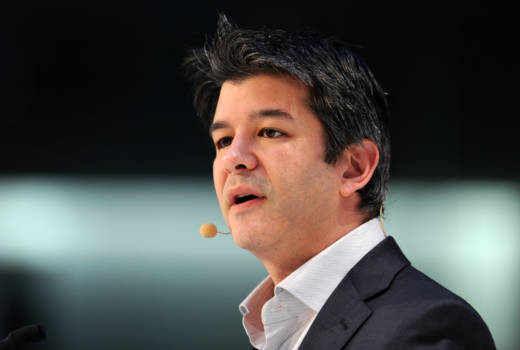"Kalanick's spectacular flameout is one for the ages. His stubborn persistence and vision made Uber what it is. Flying in the face of convention was an asset, but ultimately a horrible liability," Lashinsky wrote on Wednesday.
Some analysts see Kalanick's ouster as a bookend to a particular era of Silicon Valley history: In years past, investors would try to bring in seasoned pros to help young visionaries with the business end of things. Think Eric Schmidt at Google.
But this latest boom has bucked that trend and valued keeping founders in place at their own companies -- in spite of visible flaws in their styles of leadership.
"Silicon Valley has always recognized that founders are not the individuals to grow the firm," Kirk Hanson, with the Markkula Center for Applied Ethics at Santa Clara University, told KQED's Queena Kim last week. "I expect that Uber will be a classic case study in five years in which we look at how a startup can go wrong if the CEO visionary is not controlled and given adult supervision."
Founders are visionaries who see a business model nobody else can, added Hanson, but transforming a startup into a multinational corporation takes different skills. In his column for the New York Times looking at the impact of Kalanick's exit, Farhad Manjoo wrote that Uber might have benefited from going public earlier:
Staying private created a hothouse that reinforced its worst side, and allowed it to delay building a sustainable culture with a focus on long-term interests. How might Uber have created such a culture? First, by admitting that founders are not infallible, and recognizing that the most successful ones do best when their impulses are hemmed in by trusted lieutenants, mentors and firm boards of directors.
And for Uber itself, the criticisms were so intense that a planned move to downtown Oakland announced two years ago has been met with pushback and skepticism by many in the community, including the Greenlining Institute, which helped form a "No Uber Oakland" coalition.
But the change in leadership could provide an opportunity for Uber in Oakland, as well.
"Investors, the new leadership, must recognize that Uber has an image that is really tarnishing the company right now so the only way to work on image is by being a great neighbor," said Orson Aguilar, the president of the Greenlining Institute, and a critic of Uber, Kalanick and its planned office expansion into Oakland.

